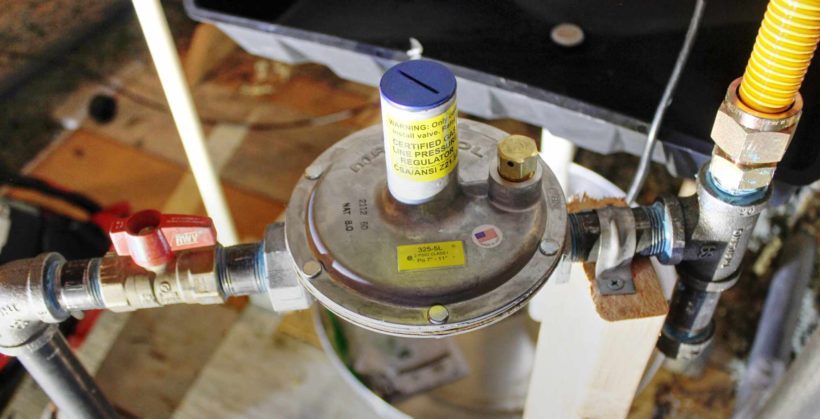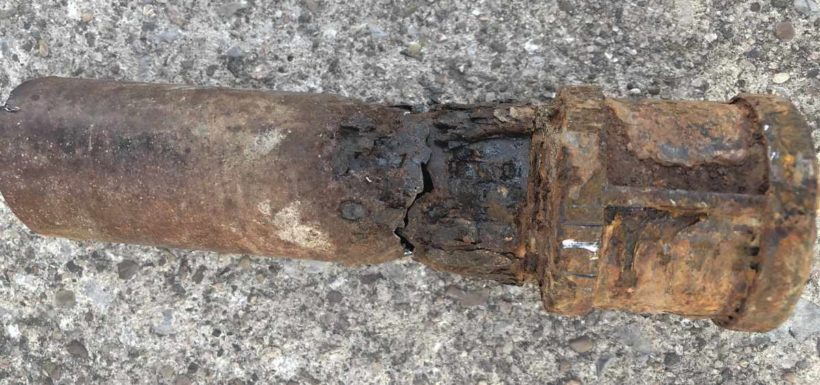
Plumbing Nightmares & Repair Horror Stories
You might expect ghosts and ghouls from horror stories, right? But a different kind of nightmare scares many adults — and it’s not haunted houses.

You might expect ghosts and ghouls from horror stories, right? But a different kind of nightmare scares many adults — and it’s not haunted houses.
You might expect ghosts and ghouls from horror stories, right?
Did you know an estimated 76 million homes in the
Your garbage disposal is a handy appliance in the kitchen,
Your toilet is, unfortunately, not a magical portal to another
*Limit one coupon per household/property. Coupons/discounts cannot be combined with any other offers. Restrictions may apply.
Legacy Plumbing HQ
1101 E Eldorado Pkwy
Little Elm, TX 75068
469-389-4020
Legacy Plumbing Frisco
15222 King Road, STE 1002
Frisco, TX 75034
972-752-6537
8:00 AM to 5:30 PM
Monday – Friday
Legacy Plumbing HQ
1101 E Eldorado Pkwy
Little Elm, TX 75068
(972) 357-1754
Legacy Plumbing Frisco
15222 King Road, STE 1002
Frisco, TX 75034
(972) 449-5879
7:00 AM to 5:30 PM
Monday – Friday
North Texas homeowners will probably never forget the February 2021 winter storm that took out power to many homes and resulted in many burst pipes and flooded houses.
As the 2021-22 winter season approaches, many homeowners have questions about how another cold snap could affect their house’s gas system.
According to recent reports, if Texas experiences a cold snap of the same magnitude, we could see a repeat of the severe power grid outages.
In the northern suburbs of DFW where Legacy Plumbing serves the majority of customers, many homes are supplied with natural gas by the providers Coserv and Atmos. This gas heats the water, supplies fuel for the furnaces, etc… As an award-winning gas line plumber, our team answers common questions about prepping homes with natural gas for winter.
Although the gas infrastructure is more robust than the electric grid and you are less likely to experience gas service outages from inclement weather, it still is possible. During the February 2021 freeze, for instance, some customers did lose natural gas service. Furthermore, electricity is required to operate some of the natural gas infrastructures, and when power was cut, it caused some big problems.
So, while natural gas has a reputation of being much more reliable than the electric grid, it still is dependent in many ways on the electric grid which increases its vulnerability.
Some gas appliances will continue to operate with the electricity off to the house. For instance, traditional gas-power tank water heaters do not connect to an electricity source at all and are completely powered by gas. Certain gas fireplaces operate in this way as well. Gas log lighters for fireplaces will also continue to work.
While your gas oven requires electricity due to the electronic controls, it can still be manually lighted. If you turn your stovetop knob to the starter position and you do not hear the typical “clicking noise”, then you have an electric igniter. Carefully turn your knob to the gas setting, and using a long match or handheld lighter, ignite the burner.
Unfortunately, appliances such as gas furnaces will not work during an electricity outage because they require electricity to operate the blower motor and other components. This means that even if your house is supplied with natural gas and uses a gas-powered furnace, you will not be able to keep the house warm during an electricity outage.

Residential gas lines do not freeze in the way that water lines freeze. Although the freezing weather caused a lot of disruption to the supply side of natural gas and many talked about the gas plants freezing, natural gas itself doesn’t freeze. There is normally no cause to be concerned about your gas lines freezing because there should not be any significant amount of water in the gas pipes.
There are some cases where water can accumulate in gas piping due to underground leaks and a few other causes. If this water freezes during especially cold weather, it could cause service disruption and require a natural gas line repair, but this would be a rare occurrence for the typical house because these types of issues are usually discovered in other ways first.
Some types of gas appliances can be crippled by freezing weather in another way, though. High-efficiency gas appliances like some tankless water heaters and natural gas furnaces do produce condensation when they run. This condensation drain pipe is usually connected to the sanitary drain system at some point or terminated to the exterior of the home.
If these lines are not properly protected from freezing, then they can cause the condensate to back up into the unit and cause the water heater or furnace to shut down. Fortunately, this is usually a much easier issue to deal with than an emergency gas line repair.
If you do have a natural gas furnace, having a gas leak during the wintertime can be a much more serious issue than it otherwise would be. This is because when the gas is shut off to your home for the repair/inspection process, your house will not have the ability to heat itself and prevent water pipes from freezing.
Whenever there is a gas leak and the gas company shuts off the gas to the residence, there is a process that must be followed to get the gas back on.
First, a natural gas line plumber will need to come out to locate the leak. The diagnosis process is sometimes very quick on smaller systems or if the leak is on an exposed section of piping. On large or complex systems, this can easily take much longer – especially if there are multiple leaks on the system.
Next, the plumber will need to make the repair. The repair can similarly be either straightforward or involved (depending upon where it is and how many there are).
After the leak has been repaired and the master plumber has tested the system to make sure there aren’t any additional leaks, then the system will need to be put under a static test. This test remains until the city inspector can come out and approve the plumber’s work and the integrity of the system.
Once the city inspector has given his “green tag”, then the gas release is sent to the gas company and they can come back out to unlock the meter and allow natural gas back to the home. At this point, any appliances with standing pilots like traditional water heaters will need to be relit.
Sometimes this entire process can be completed during a single day, but many times it can take two or three days to complete. During wintertime, the inspection process can sometimes be sped up due to the urgent nature of the situation, but there are many variables at play here.
The big takeaway is to address any gas system leaks or concerns before winter sets in (if this is possible). If you have a plumber out anyway for a different issue, it may not hurt to have them inspect the gas system to see if there are any lurking issues.

If you are concerned about your gas bill, the first step is understanding how to read your bill to know what your usage is. Atmos has a guide to understanding your gas bill on their website. Coserv does as well.
To cut down on your gas bill, there are a handful of things that you can do. Taking shorter showers and lowering the temperature of your water heater down to 120 degrees Fahrenheit will reduce the gas consumed.
Keeping your thermostat lower while still comfortable will help as well. Wearing warmer clothes indoors may help you lower the thermostat to 65 or less. If you are going to be away from home, you can turn your thermostat down to 58. A programmable/smart thermostat is a good investment to manage efficient temperature adjustments.
Eliminating drafts at doors and windows will also keep heating costs lower. Make sure everything is well-sealed and insulated. Also, make sure to close your fireplace damper if it isn’t being used.
If you would like to learn more about gas system materials and what types of issues they each are prone to, we have a great blog article on that topic.
If you would like to learn more about our gas piping repair and installation services, check out our service page for some detailed information. We are an award-winning gas line plumber in the north DFW area, and our reputation for integrity, craftsmanship, and upfront pricing speaks for itself.
To find out pricing and schedule availability, give us a call today at (972) 632-5412

If you found this helpful, please take a minute to share it on social media. Also, feel free to pass this content along to friends/family/clients of yours who may find this helpful.
Headquarters
1101 E Eldorado Pkwy
Little Elm, TX 75068
Legacy Plumbing Frisco
15222 King Road, STE 1002
Frisco, TX 75034
7:00 AM to 5:30 PM
Monday – Friday
Check out all of our Ace Hardware Home Services locations at:
Home Maintenance Services & Repair | Ace Hardware Home Services